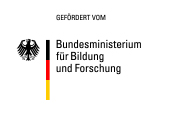Efficient – Emission-neutral – Ergonomic
Transforming maximum profit from minimum capital investment into maximum added value from minimum resources
Transforming maximum profit from minimum capital investment into maximum added value from minimum resources

In no other western industrialized nation is economic performance more tied to the manufacture of goods than in Germany, where half of all jobs are linked to production. It is important to safeguard the strong and pioneering position German production technology – and the research that goes into it – has carved out for itself over decades. And taking a European perspective, this position also needs to be expanded.
In a time of ever scarcer and more expensive energy and resources, Germany must find ways of generating maximum added value from dwindling resources if it wishes to maintain its competitive edge in the future. Putting the focus on resources will improve the sustainability of tomorrow’s production and lead not only to improved products, technologies and production systems, but also to new approaches to operations in manufacturing companies. A key feature of production in the future is to make the absolute most of materials and to reprocess them within a closed-loop recycling management system. The Fraunhofer-Gesellschaft is tackling these issues by addressing resource-efficient production, production using no new raw materials, Industry 4.0, urban production, and factory workstations of the future.
The point is to make German production more sustainable, which requires more than just hypothetical solutions. In the long run, a paradigm shift is needed – away from »maximum profit from minimum capital investment« and toward »maximum added value from minimum resources.«
Purpose of the E³ production lighthouse project
Taking a holistic view, the aim is to research how to better plan, implement and monitor the flow of materials, energy and information in emissions-neutral E³ factories carrying out ergonomic, energy- and resource-efficient production. This relies on implementing integrative solutions and utilizing synergies for all future production processes – under heavy workloads and with equal or higher output – in order to drastically reduce consumption of energy and resources. Moreover, these processes must be designed so that they can be appraised and scheduled.
In the E³ production lighthouse project, this starts with working up E³ methods and tools with which to evaluate new concepts and demonstrators that are then to be researched and developed into products in the next project phase. Considering the evaluated findings together with national and international trends in production science creates the conditions necessary in Germany to transform the investigation of production science issues into systematic research. At the same time, this provides a suitable backdrop for related initiatives on a European level.
With its E³ production lighthouse project, Fraunhofer is helping the German federal government achieve its national sustainability strategy, enabling SMEs and large companies to adopt E³ production, and strengthening the Fraunhofer-Gesellschaft’s production technology expertise.
The project structure is modeled on the pillars of E³ production, which themselves are consolidated under a fourth, strategic area of focus.
This E³ production research area focuses on the design, implementation and evaluation of ultra-short process chains. There are separate research projects addressing the following:
The emphasis here is on material loops, energy management, and a holistic and integrative concept for factories and their surroundings. The separate research projects address the following:
The third research area is concerned with integrating human experience and innovative potential more closely into production. Using information technology and devices customized for production, people can create control routines based on information stored in master databases as needed. They can also then flexibly intervene in automated production processes via assistance systems. The separate research projects address the following:
In order to establish forward-thinking production research in Germany, the integration projects will bring the individual projects’ findings together to create a master set. At the same time, attention will be given to strategic, investigative projects and to targeting coordination of the overall project.

Duration of project:
Nov. 1, 2013 – Oct. 31, 2016